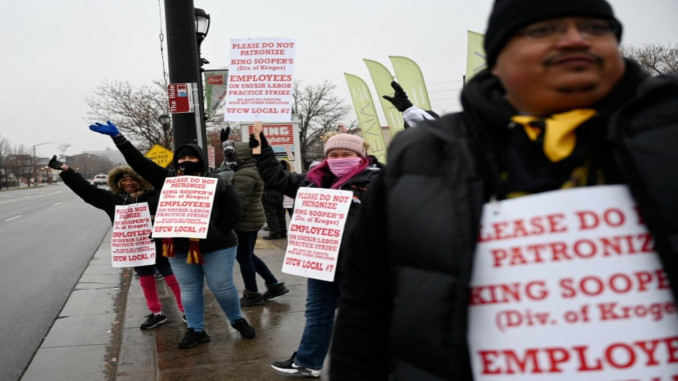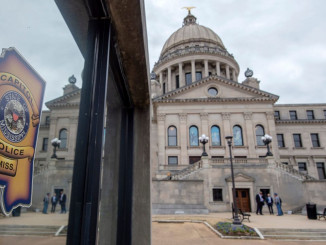
Since Wednesday, Jan. 12th, more than 8,000 workers in the Denver metro area at King Soopers, a grocery chain store owned by Kroger, have been on strike after a nearly unanimous strike authorization vote. The workers in the United Food and Commercial Workers (UFCW) Local 7 are striking after months of contract negotiations going nowhere against the company that held out their “last, best and final offer” that included only a starting wage of $16 per hour, which is just pennies above the minimum wage in Denver. To add insult to injury, this is $2 less per hour than what King Soopers is currently offering scab replacement strike breakers at $18 per hour. Currently, many workers do not make enough money to lift them out of poverty. A survey found that around 78% of Kroger workers were “food insecure” while around 14% of Kroger workers experienced homelessness over the past year. There are reports of people living out of their cars. Many rely on public assistance, which effectively subsidizes the company’s low wages with taxpayer money.
Meanwhile Kroger benefited considerably financially during the pandemic, going from $122 billion in revenue in 2019 to $132 billion in 2020 and $135 billion in 2021. On top of this, the Kroger CEO is reported to have made $20.6 million in 2020. On Kroger’s board of directors is Elaine Chao, the wife of the leading right wing Republican senator, Mitch McConnell.
The fight of the King Soopers workers is not simply an issue of money but is a fight for basic respect. King Soopers grocery workers, like many who work with the public, have found themselves on the frontlines of a society in deep crisis. There was a shooting that left 10 people dead in March, 2021 and countless confrontations without irate customers over the issue of masks. Workers concerns for their safety go beyond the issue of the coronavirus.
Since the strike began, the company has successfully filed a restraining order against the striking workers by limiting where and how many workers can picket in front of the store.
The reality is that the workers are up against an adversary with deep pockets and political connections greater than those of King Soopers alone. King Soopers’ revenue only comprises around 3% of the annual profits of Kroger, and we need to understand what they are up against. The King Soopers’ workers are absolutely right to say “no” and put up a fight. We should support them and take inspiration from them. To move the needle on this struggle they will face the challenge of trying to expand the struggle beyond King Soopers. Their struggle is our struggle!




